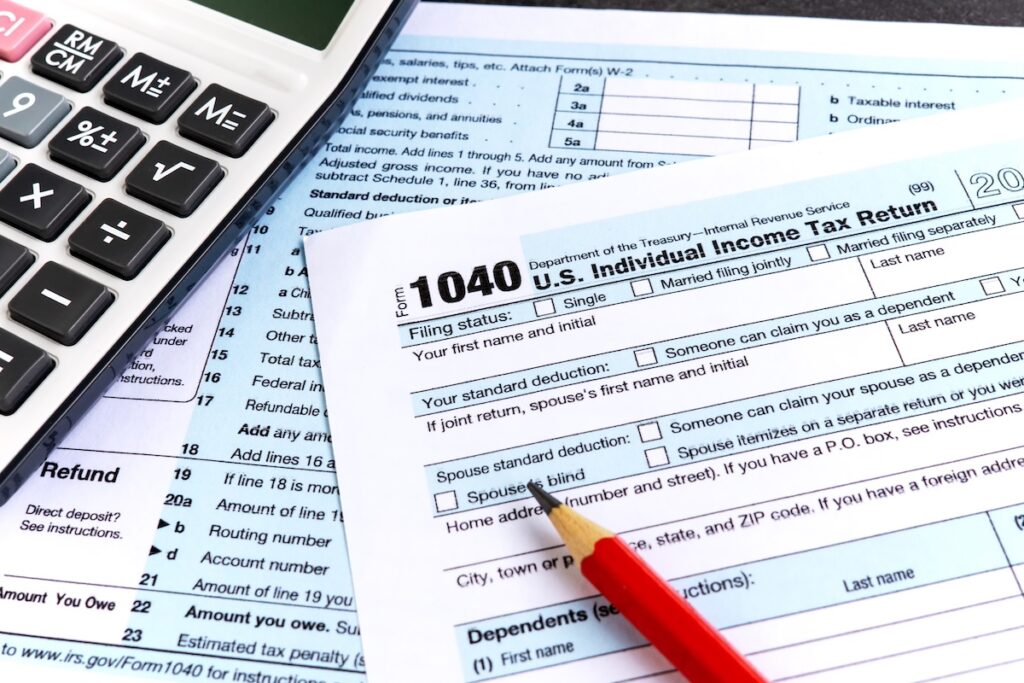June 15 US Expat Tax Deadline: 2025 Checklist
June 5, 2025 | Expat Tax Deadlines | 5 minute read
Expat Tax Blog. Tax Tips for US Americans abroad.
Updated September 8, 2025
 All blogs are verified by Enrolled Agents and CPAs
All blogs are verified by Enrolled Agents and CPAs
Updated September 8, 2025

For millions of Americans living abroad, June 15th is an important date circled on the calendar. This is because US expats receive an automatic two-month extension to file their federal tax return, unlike their stateside counterparts who must file by April 15th.
However, this does not make the process any simpler. Navigating expat tax filing requirements, including reporting worldwide income and completing all the necessary forms can feel overwhelming for many US expats. But it doesn’t have to be.
Here’s our comprehensive 2025 checklist to help you stay compliant, avoid penalties, and minimize your US tax liability.
1. Confirm Your US Tax Filing Requirement
Even if you haven’t lived in the US for years, you’re still likely required to file a US federal tax return. The US taxes citizens and green card holders on worldwide income, regardless of where they live. If you’ve fallen behind on your US tax filings, the IRS offers the Streamlined Filing Compliance Procedures to help expats catch up without facing penalties.
- Who must file? Generally, if your income exceeds the IRS minimum filing thresholds you must file. $14,600 as a single filer, $29,200 if married filing jointly for the 2024 tax year)
- Self-employed? You must file if you earn $400 or more, regardless of where you live.
2. Know Your Deadline: June 16 in 2025, Not April 15
As mentioned earlier, US expats automatically receive a two-month extension to file their federal return, moving the tax deadline from April 15 to June 15. Since the 15th falls on a Sunday in 2025, the IRS extends the deadline to Monday, June 16, 2025.
Important: This is an extension to file, not to pay. If you owed taxes as of April 15, interest began accruing from that date, even if you’re filing in June.
3. Gather Your Global Income and Financial Documents
US expats must report worldwide income. To file accurately and claim exclusions or credits, gather documents from both US and foreign sources.
- Prior year’s US tax return (for reference and carryovers)
- Foreign tax returns and tax payment records
- Income documents from foreign employers or clients (W-2, P60, P45 or foreign pay slips)
- US 1099 forms (for interest, dividends, self-employment, etc.)
- Bank statements showing interest and dividend income
- Foreign bank account information and highest balances
- Foreign pension or retirement account balances and contributions
- Records of rental income, capital gains, and investment income
- Travel records showing time spent in and out of the US (especially for FEIE eligibility)
- Details on workdays spent in the US vs. abroad
- Cryptocurrency transactions, if applicable
- Any additional documents specific to your financial situation
Organizing these documents early can save time and stress, especially if you’re working with a tax professional.
4. Claim Foreign Earned Income Exclusion or Foreign Tax Credit
To avoid double taxation, the IRS provides provisions. US expats may be eligible for key tax breaks:
- Foreign Earned Income Exclusion (FEIE): Use Form 2555 to exclude up to $126,500 of foreign earned income for 2024 and increases annually.
- Foreign Tax Credit (FTC): Use Form 1116 to claim a credit for taxes paid to a foreign government.
Pro Tip: You can’t use both benefits on the same income , choose strategically.
5. File FBAR (FinCEN Form 114)
If you had $10,000 or more in foreign financial accounts, across all accounts combined at any point during the year, you must file a Foreign Bank Account Report (FBAR)
This is not a tax form, and you do not file it with your tax return. You must submit it separately to the US Treasury Department by filing FinCEN Form 114 online through the BSA E-Filing System.
The FBAR (FinCEN Form 114) deadline does not follow the June 15 expat filing deadline like the regular tax return does. The standard FBAR deadline is April 15, with an automatic extension to October 15. You receive this extension automatically; you don’t need to request it.
6. Check If You Need to File FATCA (Form 8938)
Under FATCA (Foreign Account Tax Compliance Act), you may need to file Form 8938 if certain foreign financial assets exceed specific thresholds.
- Single expats: file if foreign assets exceed $200,000 at year-end (or $300,000 at any time during the year).
- Married filing jointly expats: thresholds are $400,000 (year-end) or $600,000 (any time).
- If you lived in the US at all during the year, your thresholds will be lower for this form
7. Report Foreign Corporations, Trusts, or Partnerships
If you own or are involved with a foreign business, partnership, or trust, additional forms may be required:
- Form 5471: For US citizens with ownership in foreign corporations.
- Form 8865: For foreign partnerships.
- Form 3520/3520-A: For foreign trusts or gifts.
These forms are complex and carry hefty penalties if not filed correctly or on time. Getting professional help ensures you file your forms correctly and on time.
8. Estimate and Pay Any Tax Due
If you owe tax, make sure to pay as early as possible. Interest starts accruing on unpaid balances from April 15 despite the June 15 deadline extension, and penalties may apply if you didn’t pay enough during the year.
Haven’t filed yet but think you owe? You can still pay the IRS based on a reasonable estimate.
This helps reduce interest and potential penalties. You can pay online through the IRS Direct Pay system (from a US bank account) or with a credit or debit card using IRS-approved payment processors. If you’re unsure of the exact amount owed, you should slightly overpay, as you can receive a refund for any excess or apply it to next year’s taxes when you file.
9. File for an Extension if You Need More Time
If June 15 isn’t enough time, you can file Form 4868 by that date to get an extension until October 15. MyExpatTaxes can help you file this form at no cost. This is just an extension to file, not to pay. Remember you must estimate your tax due and pay it to avoid interest and penalties.
Get a compete list of forms MyExpatTaxes offers
10. Check State Filing Requirements
Some US states (e.g., California, New Mexico, South Carolina, Virginia) still require tax returns from expats, even if you haven’t lived there for years.
Check if your former state of residence still considers you a resident for tax purposes. If so, you generally must report all worldwide income to that state.
If you lived in the state only part of the year—for example, if you moved abroad mid-year, you may need to file a part-year return, reporting income earned while you were a resident.
If you lived outside the state for the entire year but earned income sourced from that state (like rental or business income), you may need to file a nonresident return, reporting only income connected to that state.
11. Document Everything for Your Records
It can’t be overstated how important it is to keep thorough and organized documentation of all your tax filings and related records.
Keep copies of:
- Filed tax returns
- FBAR submissions
- Foreign income documents
- Foreign tax returns and payment records
- Communications with tax professionals
The IRS has up to 6 years or more to audit returns involving offshore income.
12. Use Tax Software or Hire an Expat Tax Professional
US expat taxes are complex. Choosing a software like MyExpatTaxes that supports expat forms and FBAR/FATCA can simplify the process. If you would prefer more guidance, MyExpatTaxes provides an easy way to automatically request a Tax Professional to review your return or even take over and do the heavy lifting for you. MyExpatTaxes’s award winning tax software and highly specialized tax professionals offer expert guidance to help you navigate tricky rules and avoid costly mistakes.
Final Thoughts
Filing US taxes from abroad can feel overwhelming, but June 15 doesn’t have to be a nightmare. Use this checklist to stay organized, meet your deadlines, and avoid penalties. If you’re unsure, contact the experts at MyExpatTaxes today to get peace of mind and ensure your filings are accurate and on time.
See Why US Expats From Around the World Love Us!
Easily file regardless of how complex your US expat tax situation is.
Been here before? Sign in!


Written by Nathalie Goldstein, EA
Nathalie Goldstein, EA is a leading expert on US taxes for Americans living abroad and CEO and Co-Founder of MyExpatTaxes. She contributes to Forbes and has been featured in Forbes, CNBC and Yahoo Finance discussing US expat tax.
June 5, 2025 | Expat Tax Deadlines | 5 minute read







